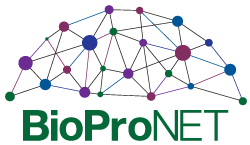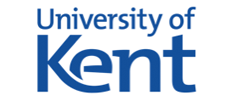October 10-11th 2018
British Medical Association House, Central London
Thank you to everyone who made this meeting a huge success. Photos will be shared with members once the photos are ready.
Wednesday October 10th
9.30 Registration
10.15-10.30 Welcome, achievements and what next for BioProNET
Designing more efficient cell-expression systems chaired by Mark Smales
10.30-10.55 Kerstin Otte University of Applied Science Biberach, Germany Identification and characterisation of intracellular production bottlenecks in CHO cells producing complex biopharmaceuticals
10.55-11.20 Colin Robinson University of Kent Development of next generation E. coli platforms for the regulated production and periplasmic targeting of biotherapeutics
11.20-11.45 Tarit Mukhopadhyay University College London Manufacturing the future at less than a $1 a dose and meeting global health needs
11.45-11.55 Andrew Peden University of Sheffield Developing a toolkit for determining the manufacturability of new therapeutics in CHO cells
11.55-12.20 Nathan Lewis University of California San Diego, USA Engineering CHO cells with enhanced traits with multiplex genome editing
Building expression systems into optimised process chaired by Yvonne Genzel
13.25-13.50 Gary Finka GlaxoSmithKline Developing a next-generation cell line development platform through targeted automation, analytics and informatics
13.50-14.15 Sophia Hober Royal Institute of Technology, Sweden The human secretome project
14.15-14.25 Mayur Parekh Teesside University Improved preservation of biologics by continuous intensified lyophilisation
14.25-14.35 James Winterburn University of Manchester From bench to business with UKRI funding
14.35–15.00 Natalio Krasnogor Newcastle University Synthetic portabolomics: bridging the gap between the lab bench and industry to speed up the development of new biotech products
The clinic and beyond chaired by Laura Palomares
15.40-16.05 Caroline Barelle Elasmogen soloMERä Biologics: Site-specific therapeutic biologics for the treatment of inflammatory disease
16.05-16.20 Simon Saxby Leaf Expression Systems Plant produced biologics – process economics
16.20-16.30 Michael Plevin University of York Can an archaeal helicase enhance the performance of a nanopore DNA sequencer?
16.30-16.40 Pavlos Kotidis Imperial College London A mathematical model to describe CHO cell growth and monoclonal antibody glycosylation
18.00 Poster session
20.00 Conference dinner
Thursday October 11th
Upstream meets downstream – rapid process development chaired by Cleo Kontoravdi
9.00-9.25 Paul Dalby University College London Analysis and control of protein dynamics and stability: downstream to formulation
9.25-9.50 Yvonne Genzel Max Planck Institute for Dynamics of Complex Technical Systems, Germany Intensified cell-based viral vaccine processes: from continuous to perfusion and to hybrid systems
9.50-10.15 Maiken Kristiansen MedImmune Nucleic acid production for biotherapeutics
10.15-10.25 Dave Brockwell University of Leeds Investigating the effects of hydrodynamic force on the structure and biological integrity of a viral vector gene therapy product
10.25-10.35 Davide Vito University of Kent Translation engineering through the non-coding genome in CHO cells
10.35-11.00 Pernille Harris Technical University of Denmark Solution structure and self-association of pharmaceutical proteins
Molecular characterisation of process quality chaired by Alan Dickson
11.40-12.05 Mike Betenbaugh Johns Hopkins University, USA Glycoengineering of mammalian cell lines to improve product quality
12.05-12.30 Laura Palomares National Autonomous University of Mexico Challenges of bringing recombinant vaccines to the market: A case study for a influenza vaccine
12.30-12.40 Perdita Barran University of Manchester Top-down mass spectrometry methods for full characterisation of biopharmaceuticals
12.40-12.50 Rosa Morra University of Manchester Classical and non-classical secretion pathways in E. coli for periplasmic and extracellular recombinant protein production
12.50-13.15 Jonathan Bones The National Institute for Bioprocessing Research and Training, Ireland Characterisation of biopharmaceuticals using intact protein separations hyphenated to high resolution native mass spectrometry







